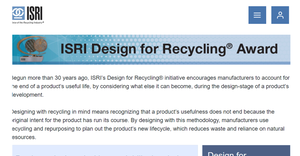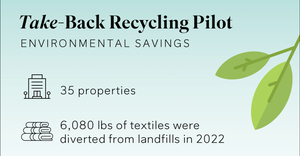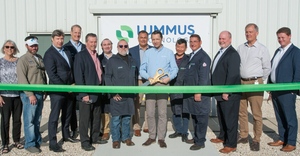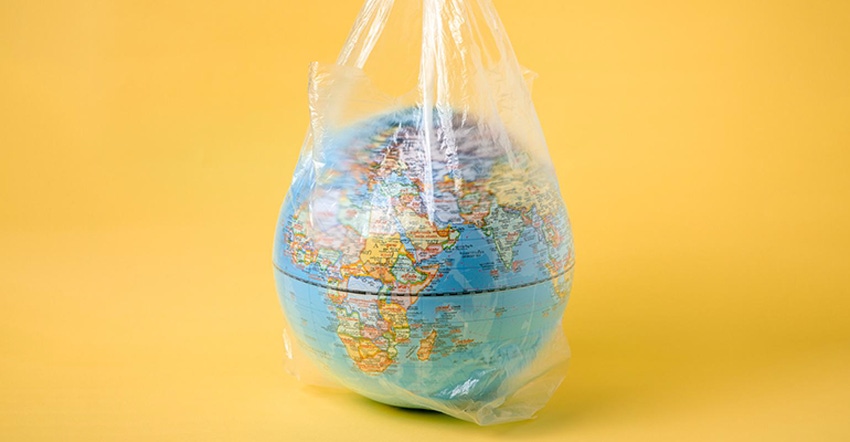
The pandemic has turned the world upside down. Yet, the economy needs to rebound and isn’t now the perfect time to discuss it becoming a more circular one? We have hit peak plastic use with PPE and single-use bans relaxed. All of this had us thinking — what does sustainability look like post-pandemic and specifically, what’s the waste and recycling industry’s role in this?
Big questions need even bigger answers. Enter this amazing all-star cast for Waste360’s Creating A Sustainable World Post Pandemic webinar.

Dave Ford (Moderator)
Founder of SoulBuffalo and Co-Founder
Ocean Plastics Leadership Network
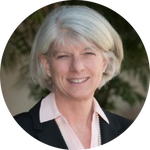
Susan Robinson
Senior Director of Sustainability and Policy
Waste Management

Bridget Croke
Managing Director
Closed Loop Partners

Keefe Harrison
CEO
The Recycling Partnership
Here are just some of the expert insights gleaned from this popular webinar.
Dave Ford of the Ocean Plastics Leadership Network kicked it off by trying to frame the chaos around the plastics crisis. His visual shows the sheer level of complexity that needs to be overcome. To start, people are confused. Only 10% of material is being recycled. Governments. NGOs. Financials. There are numerous stakeholders and a good deal to address.
Plus, layered on top of that is COVID-19 — it has created a new reality for the ocean plastics crisis. With PPE in the waste stream, record low oil prices, challenging economic times and rolled back bans, the sense of uncertainty is higher than ever. Time is short and now is the time to focus on building a more sustainable world.
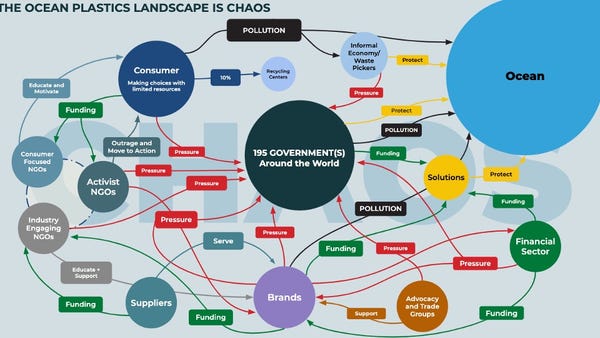
Next up, Susan Robinson started by outlining the herculean effort that Waste Management has undertaken in the last couple of months to adapt to the challenges around this pandemic.
The industry giant has 20+ million customers, 45,000 employees, 14,000 collection routes and 150 recycling and organics facilities. They moved 20,000 employees to at-home work in one week, bought thousands of laptops and rolled out a new software program to accommodate it all. They also re-routed commercial trucks and adapted to 25 percent more residential routes. And most important of all, WM implemented safety protocols to keep workers safe and to continue to supply feedstock to recycling markets.
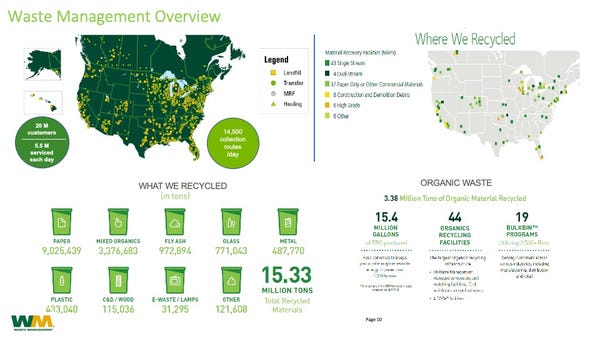
Robinson thinks many of these changes will be the new normal, but hopes that one thing surely sticks. She said, “I now see that supply chain is one of the most important functions on earth from medical equipment to food to tissue and toweling. For the first time, for most of us, we noticed the supply chain when we shopped, especially when something wasn’t there. This has really made visible the invisible part of the circular economy. We’ve gotten a glimpse into the work that magically happens behind the scenes. And we can see why recycling is essential to supplying the feedstock that manufacturers need and this is what the circular economy is all about. “
Keefe Harrison from The Recycling Partnership (TRP) is six years into TRP’s efforts and is making major headway. They are funded by corporate entities and have $104 million pledged to date.
“When we’re talking about sustainability from a coronavirus point of view, I agree with what Susan just said about supply chains. It has never been clearer that we need to take a holistic view because only when the material gets applied as an economic perspective turned into something new that we get into an environmental one,” said Harrison.
She went on to say, “We’re looking at a holistic solution. A couple of materials come to mind immediately. The demand for boxes has never been higher. We see heavy demand for paper and that shift from the commercial market, but the ability for a residential mixed paper bale to make tissue is not an easy fix. So, we see how the opportunity for future investments could create flexibility in supply chains.”
She did want to make abundantly clear that, “Whether in good times or bad, I see a thread of what can make recycling healthier and it’s contamination and quality. “
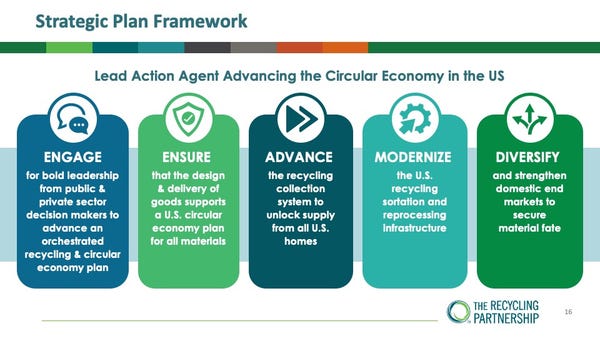
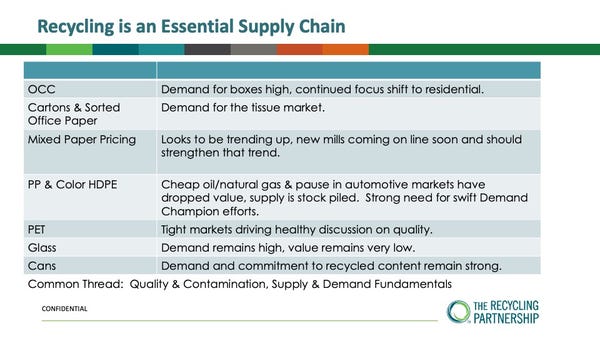
Bridget Croke outlined how Closed Loop Partners is an investment and innovation firm that’s focused on the circular economy.
They have already invested in 50 municipalities, recycling companies and other companies across the entire value chain to drive that. They have unlocked more than $300 million in the circular economy in the last five years.
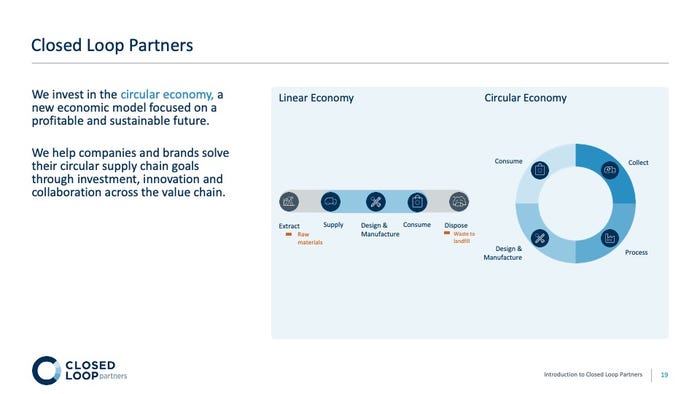
“What we’re seeing in our network is that many of these innovations are even more relevant in a Covid and post-Covid world. We’re seeing lots of trends in automation, transparency in supply chains and regionalization. We’re seeing a lot of opportunities from recycling companies and on the recovery side to those on the front end,” said Croke.
What’s happening now?
Robinson talked about how overall residential volumes are up, commercial is down, how we are seeing more cardboard from e-commerce, processing is slower with new safety protocols, and there is a higher demand in prices for cardboard and paper.
She also outlined two issues that have affected recycling in the last two months.
1. Domestic paper markets: Paper mills like Pratt Industries rely solely on post-consumer fiber as China has constricted. So, when people ask why is recycling essential? It is because many of the packages produced in the U.S. can only be made with recycled paper.
2. All recyclables are not created equal even if they are the same commodities: Plastic collected in residential programs usually gets recycled back into carpeting and clothing and HDPE gets recycling into plastic piping and industrial applications and metals are recycled into car parts for construction applications. Most are not used in packaging. Most of those bottles and cans come from deposit programs because they are cleaner.
“Our primary focus has been on people, safety and processes and now as the economy opens up we can think about what’s next in a downturn. We expect hiccups, they should be short-term and we have long-term investment goals and that won’t change,” Robinson said.
Harrison sees increases of 10-15 percent in residential volumes as a pretty steady norm. She is focusing on…
Worker safety: I think our MRFs have put in fierce dedication to make sure worker safety is top of mind. We know that 76 programs are paused, but those are small and lacked automation. We are now hearing that they have interest in grants to help with automation.
What the future will bring: I’m concerned about tax revenues and what do we see is coming and how can we balance that specifically around state grants and community needs. If communities can’t afford to collect materials, it will be hard to accomplish our goals.
What’s the upside?
Croke talked about recovery first and said that challenges are not new to this industry. She mentioned that we have seen market challenges, change, shifts in packaging, major markets disappearing and more. The fact that this industry has been forced to be resilient in recent years, will help us overcome this. And it should build more resiliency into our supply chain.
She sees automation and no-touch technologies in the future to help with safety concerns in the way we manage waste.
Robinson continued the positive outlook by saying that there has been a lot of technology investments and more recycling investments than we have seen in the previous decade. By 2023, 93% of WM’s tons would be processed at facilities with the most modern technology.
Harrison said that the bright spot for her is all around the supply chain from producers and recyclers to policy makers. She wants us to remember these lessons even once we get to the other side. Once we understand recycling is feedstock for manufacturing, it can compete on price, quality and quantity – then we know where we need to make investments. Harrison is also not seeing any changes around sustainability interest.
What does the crystal ball tell us?
Want to know what lies ahead in paper, plastics and oil markets?
How about budget cuts?
This expert panel talked more about contracts, municipal budgets, the value of recyclables, oil markets, the future of corporate commitments and more.
About the Author(s)
You May Also Like


